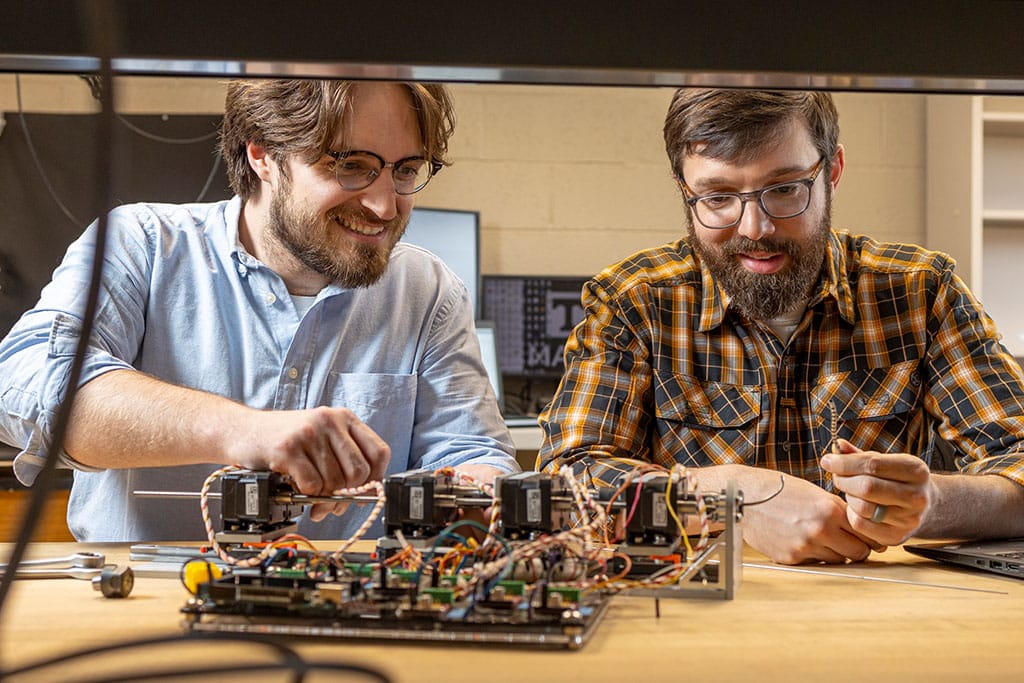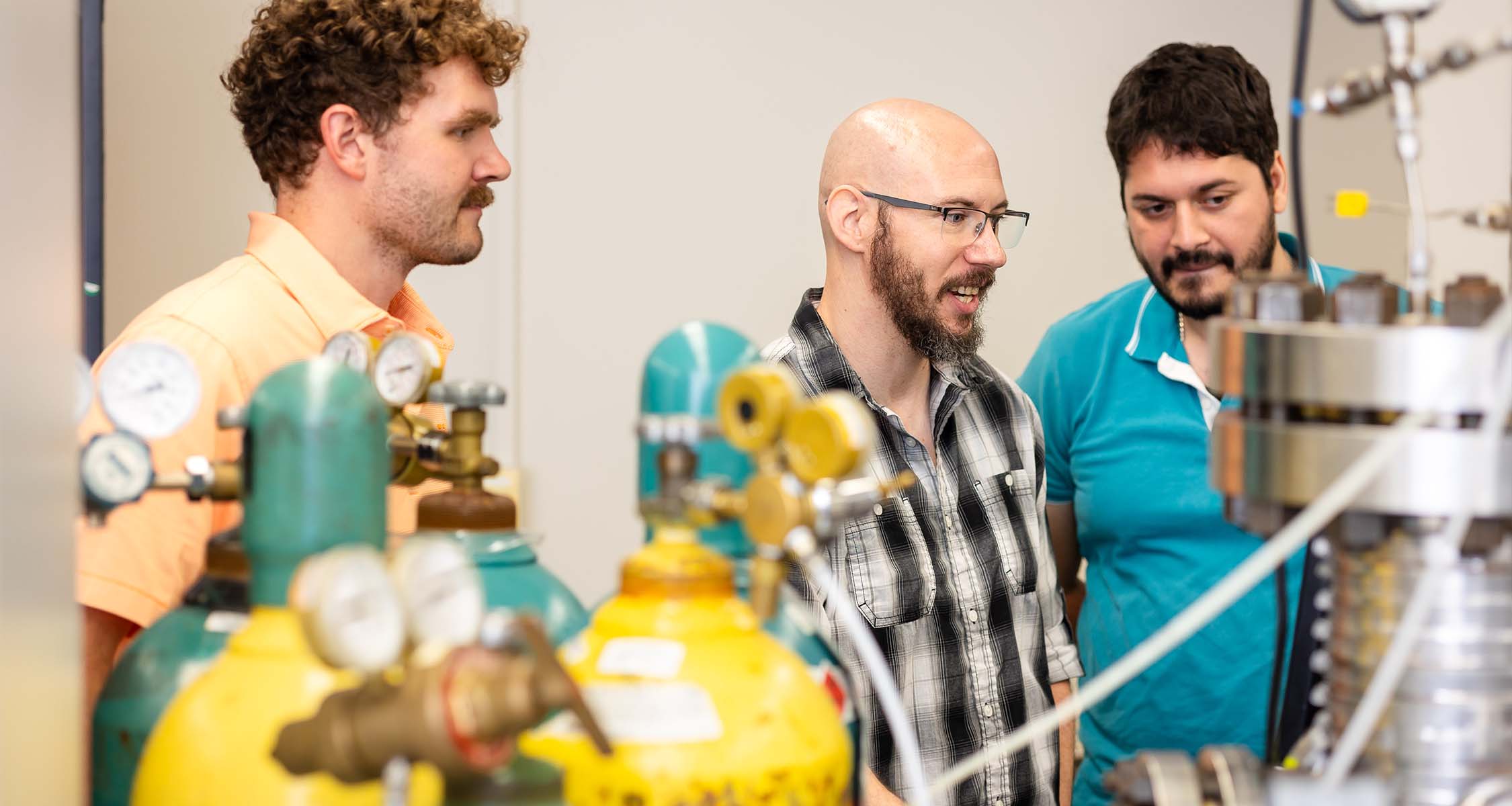Graduate programs
PhD in Mechanical Engineering
UT’s PhD in mechanical engineering is designed for engineers who are ready to contribute new knowledge and technologies that address today’s biggest engineering challenges. This research-driven program supports innovation in areas ranging from sustainable energy and robotics to materials design and thermal systems.
Program Overview
The mechanical engineering PhD program emphasizes independent, original research supported by advanced coursework and close faculty collaboration. Students choose research concentrations aligned with faculty expertise, including solid and fluid mechanics, computational modeling, thermal sciences, and systems control. The program culminates in a dissertation and prepares graduates for leadership in academia, research institutions, and high-tech industry.

Why Study at UT?
UT offers a collaborative research environment with access to nationally renowned facilities, including Oak Ridge National Laboratory. Mechanical engineering PhD students work on cutting-edge projects with societal impact—ranging from clean energy and automation to sustainable manufacturing. The program prepares scholars and innovators to shape the future of mechanical systems across industries.
Concentrations
Concentration specific courses for the following five concentrations are selected in consultation with the major professor and guidance committee:
- Applied Mechanics
- Automotive Manufacturing Simulation and Design
- Nuclear Space Science and Engineering
- Systems and Controls
- Thermal-fluid Mechanics

Our Curriculum
The PhD program requires a minimum of 72 credit hours beyond the bachelor’s degree. These must include a minimum of 24 hours in Doctoral Research and Dissertation (ME 601). Specific requirements for required course work are:
- With a BS degree: Students will be required to take a minimum of 42 hours of graduate course work, exclusive of ME 601, dissertation credit or seminar courses.
- With a MS degree: Students will be required to take a minimum of 12 hours of graduate course work, exclusive of ME 601, dissertation credit or seminar courses.
All students must also complete:
- A minimum of 9 credit hours of graduate coursework in mathematics courses numbered 400 or above with a minimum of 3 credit hours numbered 500 or above. The department may approve other courses with sufficient mathematical content to meet this requirement.
- A minimum of 21 credit hours of graduate coursework in mechanical engineering (ME) or other courses offered in MABE numbered 500 and above. The department may approve other departmental courses to meet this requirement.
- A minimum of 6 credit hours of graduate coursework is required at the 600-level, exclusive of ME 600 and ME 601.
- The total number of approved coursework and dissertation credit hours must meet the university’s requirement of a minimum of 72 credit hours, inclusive of ME 595 and ME 601.
In addition to coursework, all students must:
- Meet all departmental course requirements.
- Pass a written and oral comprehensive examination.
- Presentation of a dissertation proposal to the student’s advisory committee and approval of that proposal by that committee.
- Successful defense of the dissertation.
Featured Courses
Check out some of the courses that our students take as part of the mechanical engineering program. For a full list of courses, use the link below.
ME 605 Mechatronics II
Introduction to designing microcontroller-based embedded computer systems using assembly and C programs. Examination of Real-time Operating Systems and their impact on performance. A/D and D/A interfacing. Engineering applications will be emphasized.
ME 613 Advanced Radiation Heat Transfer
Radiation heat transfer in absorbing, emitting and scattering media; interaction of thermal radiation with conduction and convection heat transfer.
ME 621 Advanced Topics in Mechanical Systems
Advanced theory and applications in control systems, dynamics, mechanics, strength of materials and vibrations.
ME 686 Human-Robot Systems
Analysis of modern human-robot system concepts: review of current research and literature in telerobotics, human-robot cooperation and interaction, including internet integration, cloud computing, virtual reality and haptic interfaces.

Join Us on Rocky Top
Apply to Grad School
Ready to become an Engineering Vol? Want to learn about our admission requirements for Grad School? Use the links below to learn more about how to join our Volunteer community!
